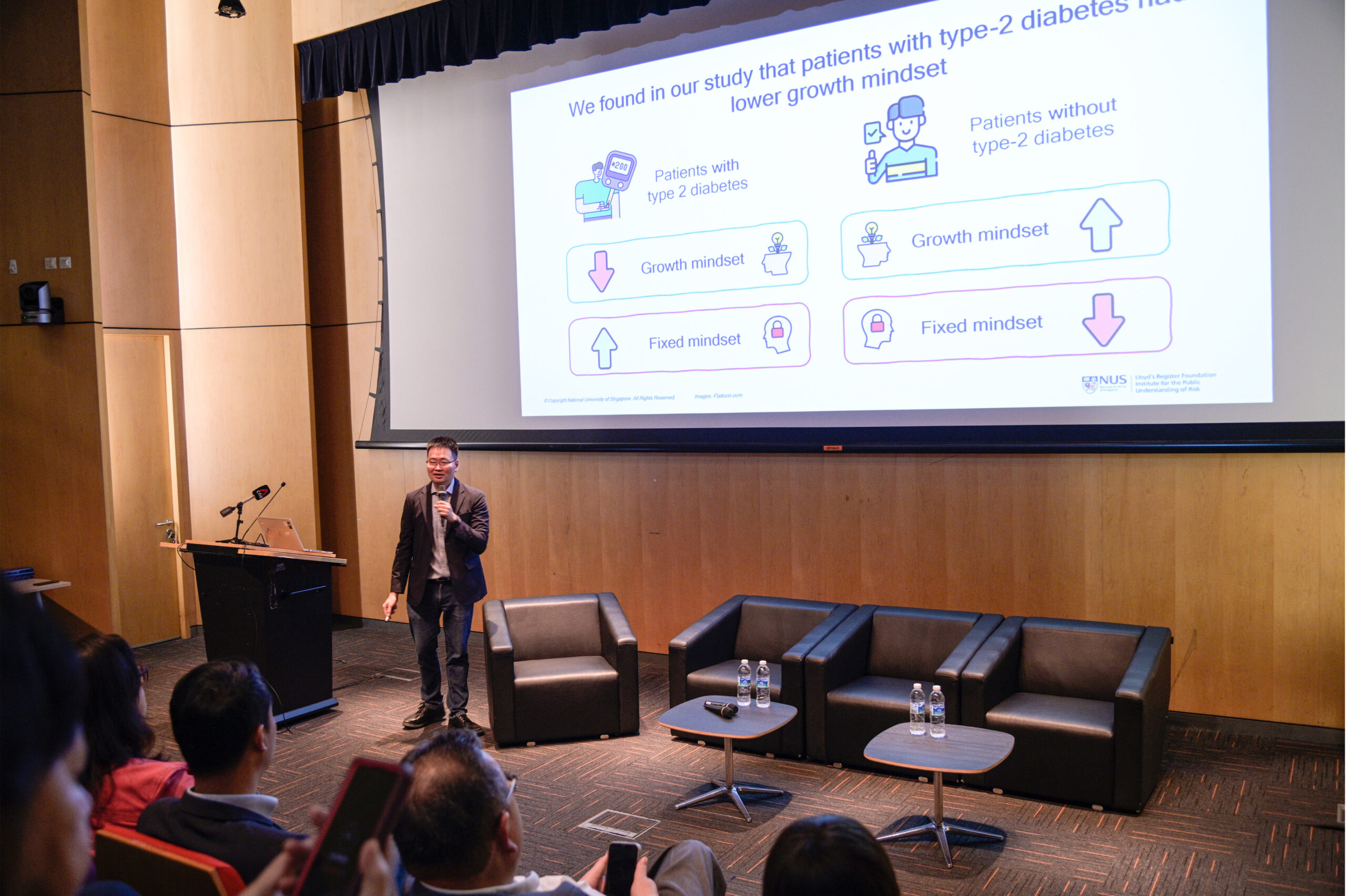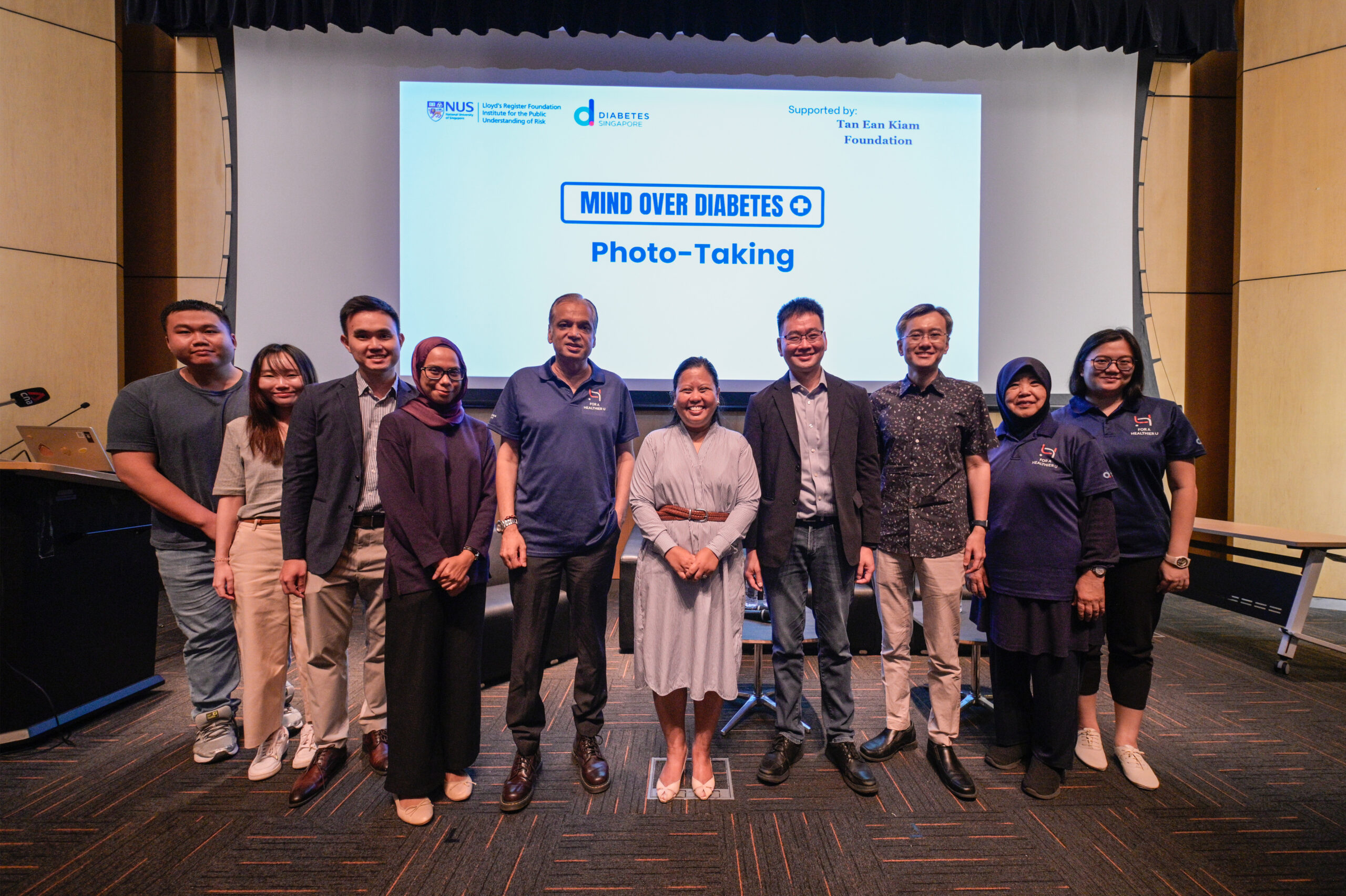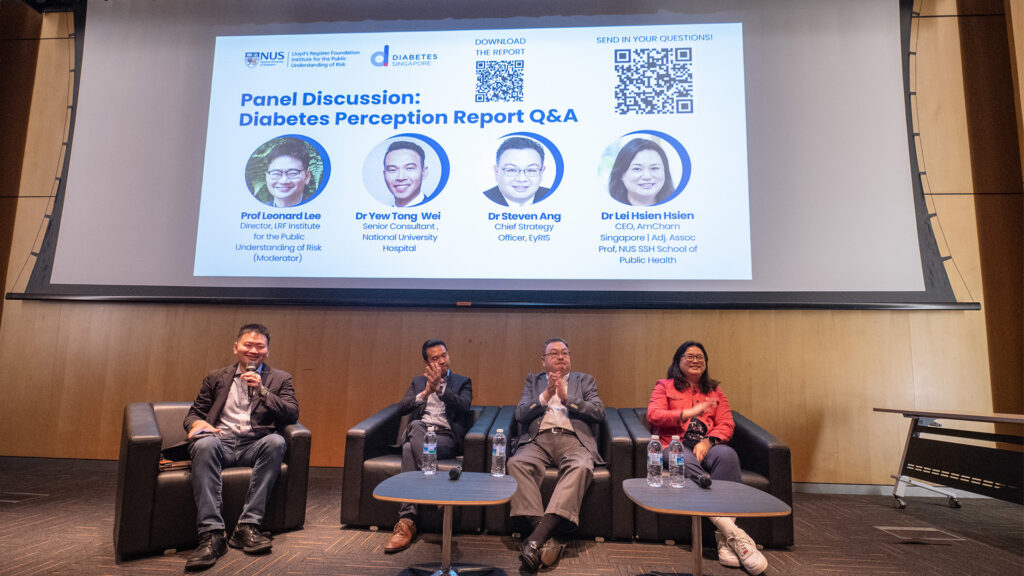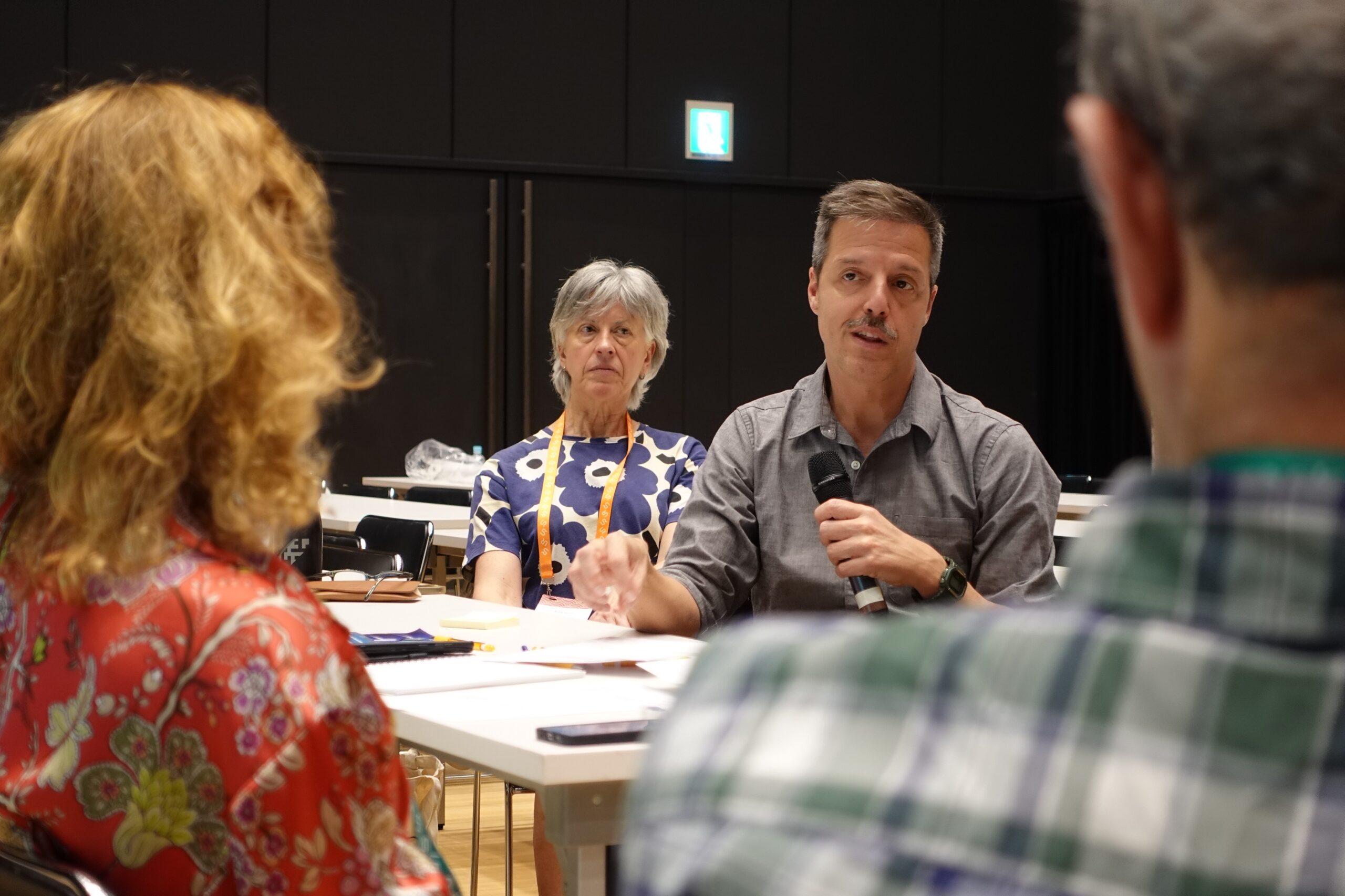Impact Stories
Diabetes Risk: Embracing Facts to Pioneer New Approaches
Diabetes is a critical global health issue, currently affecting one in ten adults worldwide (International Diabetes Federation, 2021; Lin et al., 2020). By 2045, this figure is projected to increase by 46%, with one in eight adults expected to be diagnosed with diabetes. In Singapore, more than 400,000 people are living with diabetes today, a number that could reach 1 million by 2050, with a rising prevalence in those under 40 (Seah & Yang, 2023).
Against this backdrop, IPUR partnered with Diabetes Singapore to understand public perceptions and assess awareness levels of diabetes in Singapore, as well as to engage healthcare providers, policymakers, individuals with diabetes and the wider community in dialogue on improving diabetes care and management.
The result of this partnership was the Diabetes Perception Report which was presented by Prof Leonard Lee on 2nd November 2024, where IPUR and Diabetes Singapore organised the Mind Over Diabetes event at the Lifelong Learning Institute. The collaboration between IPUR and Diabetes Singapore aimed to improve diabetes care through research, community outreach, and awareness. The partnership promoted a proactive approach to diabetes management, integrating a growth mindset to empower individuals in taking charge of their health.

Prof Leonard Lee (IPUR Director) presenting the Diabetes Perception Report. Photo credits: Diabetes Singapore.

A group photo with Guest-Of-Honour Ms Marriam Jafaar, as well as the IPUR and Diabetes Singapore team.
Following Prof Lee’s talk, Guest-of-Honour Ms Mariam Jaafar (Member of Parliament for Sembawang GRC and a member of the PAP Mental Health Group Steering Committee) gave an address on the psychological challenges of diabetes.
She emphasised that diabetes management is not solely about physical health but must also encompass mental well-being. She noted that the emotional journey of managing diabetes often includes feelings of anxiety, fear, and hopelessness, which can, in turn, affect adherence to treatment plans.
Ms Jaafar stressed the need to dismantle stigmas surrounding both diabetes and mental health, as people with diabetes may face a “double stigma.” She advocated for safe spaces where individuals can openly discuss their struggles and for integrating mental health support into diabetes care plans. Ms Jaafar also highlighted the significance of community support, not only for individuals with diabetes but also for caregivers, whose mental health may be impacted by caregiving responsibilities.

Guest-of-Honour Ms Mariam Jaafar delivering an inspiring speech which addressed the psychological hurdles of managing diabetes.
Building on the critical insights shared by Prof Lee and Ms. Jaafar, the event also featured a dynamic Q&A session, where healthcare experts addressed pressing questions from the audience. This interactive discussion provided practical advice on managing diabetes, from lifestyle modifications to the role of technology in care. The following are key highlights from the panel that offered valuable perspectives on how to navigate the complexities of diabetes management.


Panel discussion with speakers: Prof Leonard Lee (Director, IPUR), Dr Yew Tong Wei (Senior Consultant, National University Hospital), Dr Steven Ang (Chief Strategy Officer EyRIS), Dr Lei Hsien Hsien (CEO, AmCham Singapore | Adj Assoc Prof, NUS SSH School of Public Health).
Audience members during the Q&A section.
Q&A Section Highlights
The Q&A session featured an insightful panel discussion, where experts provided practical answers and valuable perspectives. Here are four key highlights:
- Is diabetes reversible?
Dr. Yew Tong Wei explained that while lifestyle changes and consistent management can normalize blood glucose, the underlying disease mechanisms often persist. In early stages, diabetes can be well-managed, but in later stages, it is not reversible, and medication remains necessary. Dr. Lei emphasised that diabetes complications are typically irreversible, highlighting the importance of long-term commitment to diabetes control. - What dietary approach would you recommend for diabetes management?
Dr. Yew Tong Wei introduced “carbohydrate budgeting” as a sustainable approach. He suggested spreading carb intake throughout the day to prevent blood sugar spikes, focusing on low glycemic index (GI) carbs like whole grains, vegetables, and legumes. Pairing carbs with proteins and healthy fats can also help regulate blood sugar levels, while maintaining a balanced, adaptable plan to avoid burnout. - How can technology aid in diabetes care?
Dr. Lei Hsien Hsien and Dr. Steven Ang discussed the role of emerging technologies, such as continuous glucose monitors and dietary tracking apps. These tools provide real-time insights, helping patients monitor their blood sugar and make healthier choices. - What are common complications of diabetes, and how can they be prevented?
Dr. Yew Tong Wei explained that chronic complications, like heart disease, kidney failure, neuropathy, and retinopathy, result from prolonged high blood sugar. Acute complications, such as hypoglycemia, can develop suddenly. He emphasised the importance of regular blood sugar control, balanced nutrition, consistent exercise, and routine check-ups to prevent complications and improve quality of life.
As a final call to action, the event encouraged community members to participate in regular health screenings, stay connected with supportive networks, and embrace growth-focused care strategies. This ongoing commitment to addressing both the physical and emotional dimensions of diabetes reflects a progressive vision for a healthier, more resilient Singapore.
These 2 videos were produced in collaboration with Diabetes Singapore.


